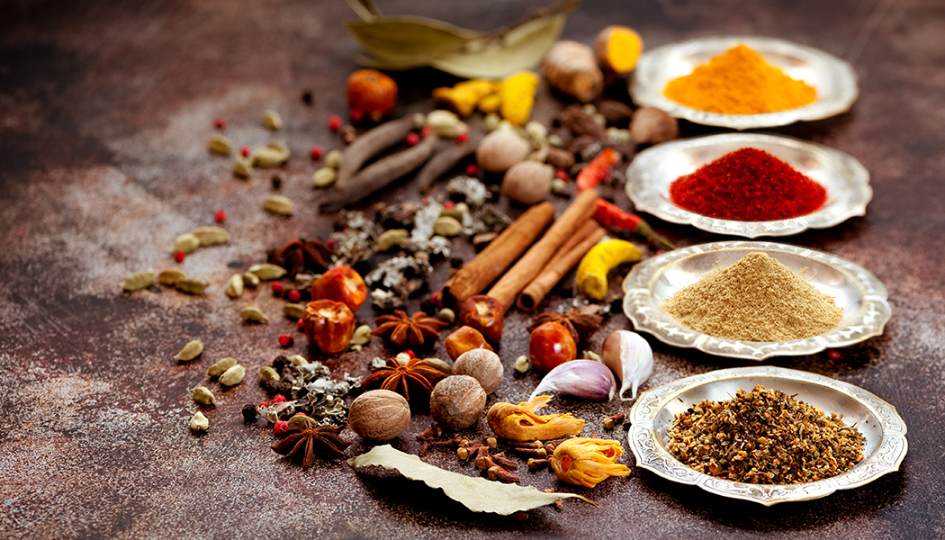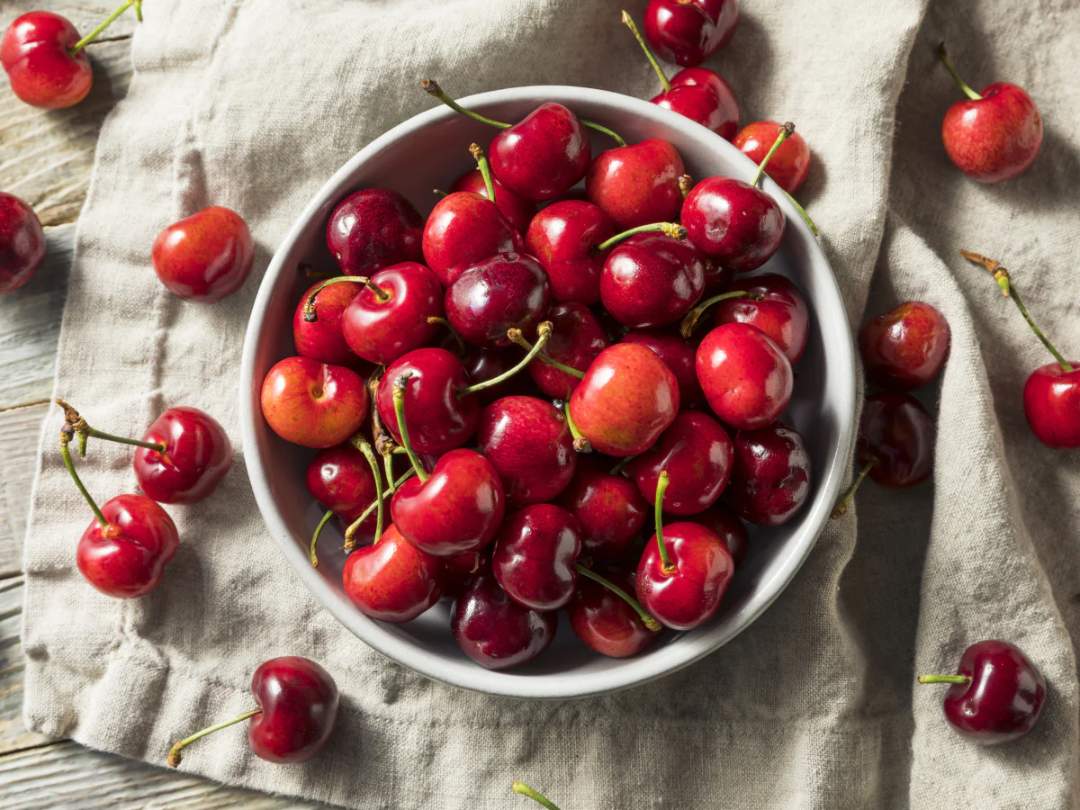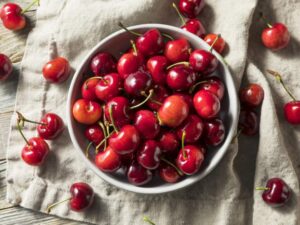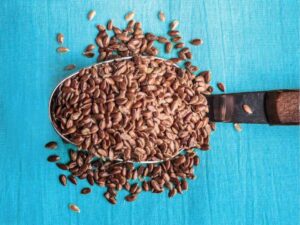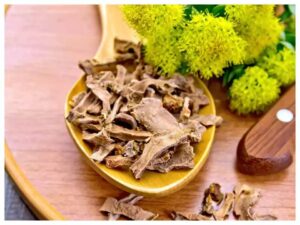Cancer is a disease that affects millions of people worldwide and is one of the leading causes of death. Despite the advancement of modern medicine, cancer remains a challenging condition to treat. However, there is a growing body of evidence that suggests that certain herbs and mushrooms can help prevent and treat cancer. In this article, we will take a look at the top 10 medicinal herbs and mushrooms that have been shown to have anti-cancer properties.
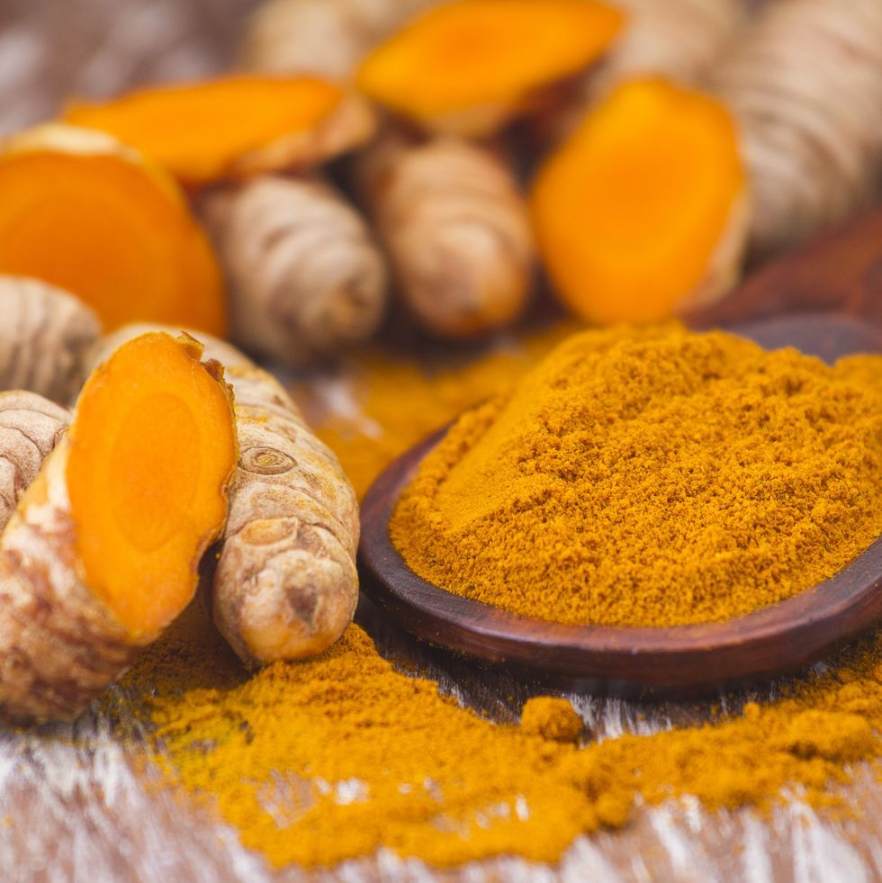
1. Turmeric
Turmeric is a popular spice that is commonly used in Indian and Middle Eastern cuisine. The active ingredient in turmeric is curcumin, which has been shown to have powerful anti-inflammatory and antioxidant properties. In addition, curcumin has been shown to have anti-cancer properties, and has been found to be effective in treating various types of cancer, including breast, lung, and colon cancer.
Core ingredients:
Curcumin is the active ingredient in turmeric that is responsible for its anti-cancer properties.
Methods of consumption:
Turmeric can be consumed in several ways, including as a spice in cooking, as a supplement in pill form, or as a tea. It is important to note that curcumin is not well absorbed by the body on its own, so it is often combined with black pepper to increase its absorption.
Other health benefits:
In addition to its anti-cancer properties, turmeric has also been shown to have a number of other health benefits, including reducing inflammation, improving brain function, and reducing the risk of heart disease.
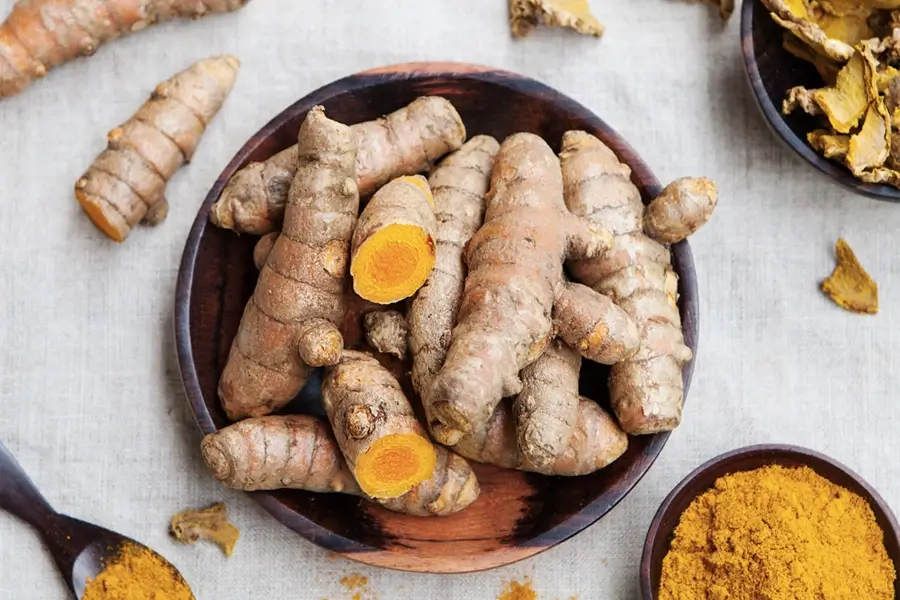
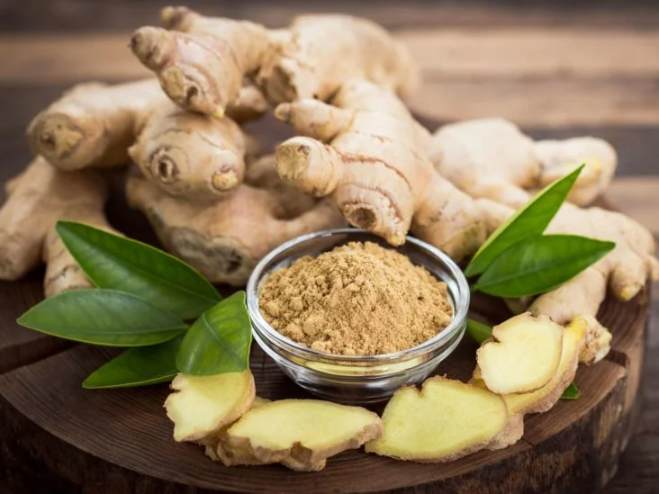
2. Ginger
Ginger is a popular spice that is commonly used in cooking, but it also has a long history of use in traditional medicine. The active ingredient in ginger is gingerol, which has been shown to have anti-inflammatory and antioxidant properties. In addition, ginger has been found to have anti-cancer properties, and has been shown to be effective in treating various types of cancer, including ovarian, prostate, and colon cancer.
Core ingredients:
Gingerol is the active ingredient in ginger that is responsible for its anti-cancer properties.
Methods of consumption:
Ginger can be consumed in several ways, including as a spice in cooking, as a supplement in pill form, or as a tea.
Other health benefits:
In addition to its anti-cancer properties, ginger has also been shown to have a number of other health benefits, including reducing inflammation, improving digestion, and reducing the risk of heart disease.
More information about Ginger >
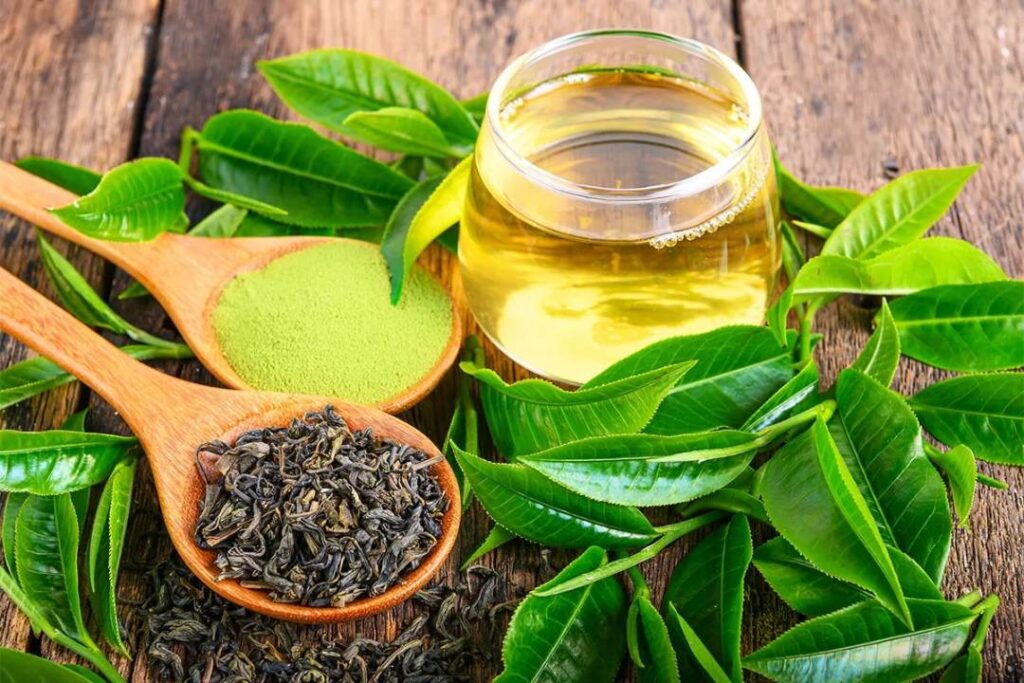
3. Green tea
Green tea is a popular beverage that is widely consumed in many countries around the world. The active ingredient in green tea is epigallocatechin gallate (EGCG), which is a powerful antioxidant. EGCG has been shown to have anti-cancer properties, and has been found to be effective in treating various types of cancer, including breast, prostate, and lung cancer.
Core ingredients:
Epigallocatechin gallate (EGCG) is the active ingredient in green tea that is responsible for its anti-cancer properties.
Methods of consumption:
Green tea can be consumed as a hot beverage, or as a supplement in pill form.
Other health benefits:
In addition to its anti-cancer properties, green tea has also been shown to have a number of other health benefits, including improving brain function, reducing the risk of heart disease, and promoting weight loss.
More information about Green tea >
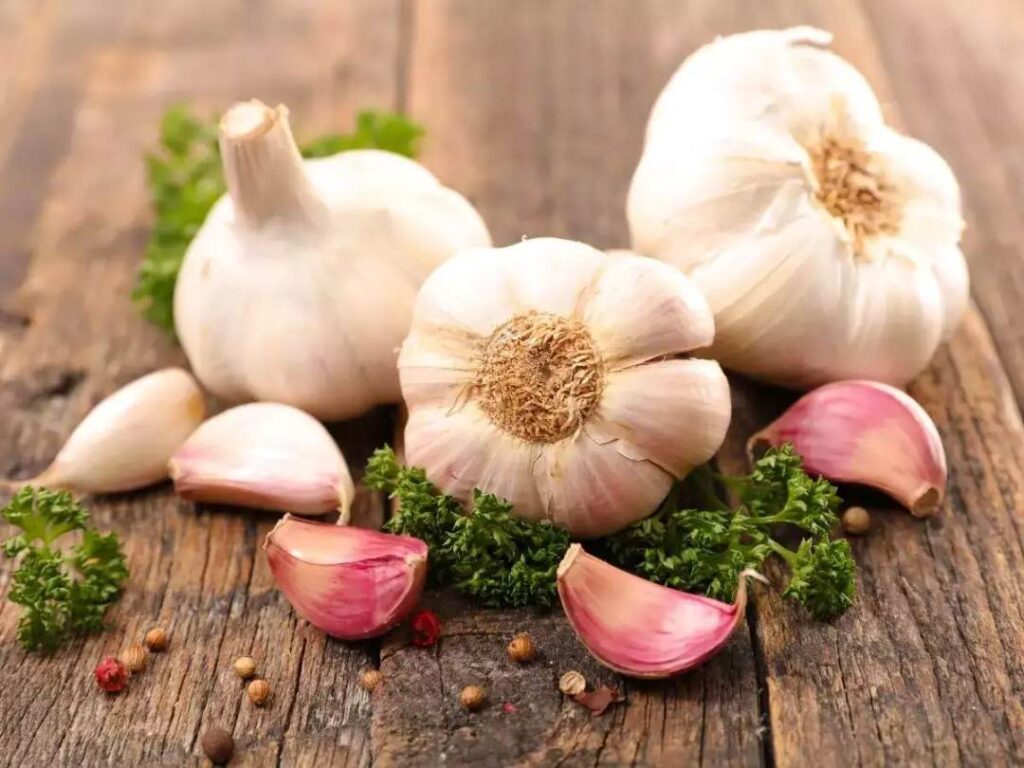
4. Garlic
Garlic is a popular spice that is commonly used in cooking, and has a long history of use in traditional medicine. The active ingredient in garlic is allicin, which has been shown to have anti-inflammatory and antioxidant properties. In addition, garlic has been found to have anti-cancer properties, and has been shown to be effective in treating various types of cancer, including stomach, colon, and lung cancer.
Core ingredients:
Allicin is the active ingredient in garlic that is responsible for its anti-cancer properties.
Methods of consumption:
Garlic can be consumed raw or cooked, or as a supplement in pill form.
Other health benefits:
In addition to its anti-cancer properties, garlic has also been shown to have a number of other health benefits, including reducing inflammation, improving heart health, and boosting the immune system.
More information about Garlic >
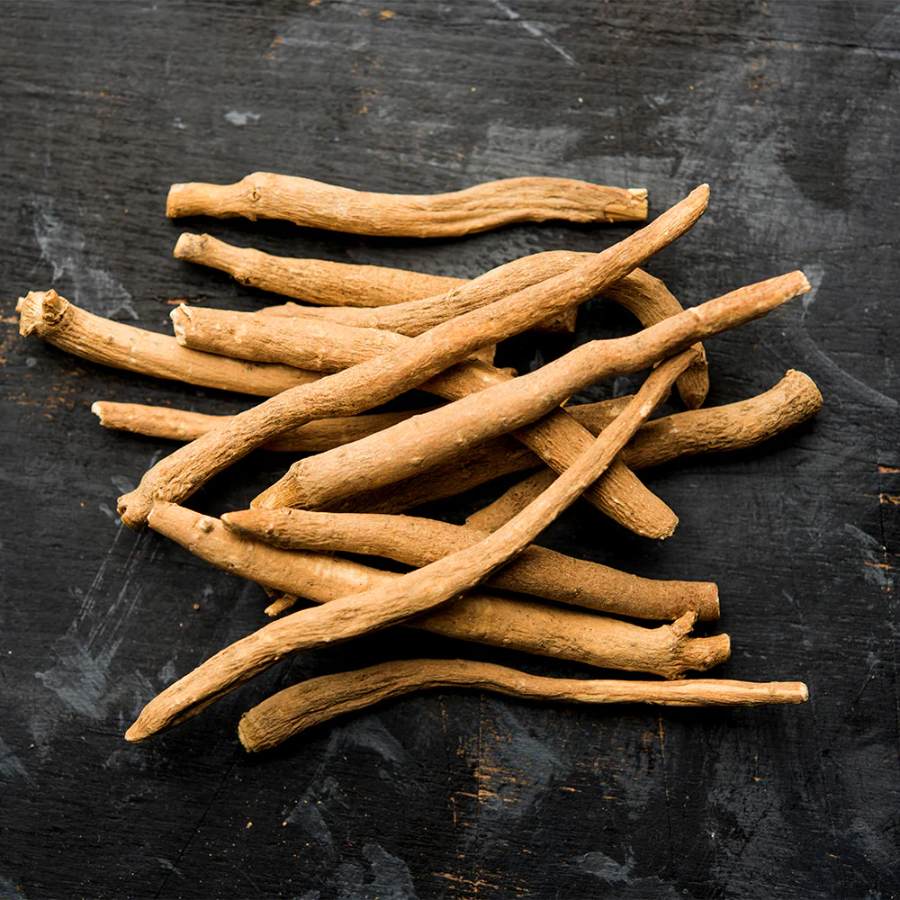
5. Ashwagandha
Ashwagandha is an herb that is commonly used in Ayurvedic medicine, and has a long history of use in traditional medicine. The active ingredient in ashwagandha is withanolides, which have been shown to have anti-inflammatory and antioxidant properties. In addition, ashwagandha has been found to have anti-cancer properties, and has been shown to be effective in treating various types of cancer, including breast, lung, and prostate cancer.
Core ingredients:
Withanolides are the active ingredients in ashwagandha that are responsible for its anti-cancer properties.
Methods of consumption:
Ashwagandha can be consumed as a supplement in pill form, or as a tea.
Other health benefits:
In addition to its anti-cancer properties, ashwagandha has also been shown to have a number of other health benefits, including reducing stress and anxiety, improving brain function, and boosting the immune system.
More information about Ashwangandha >
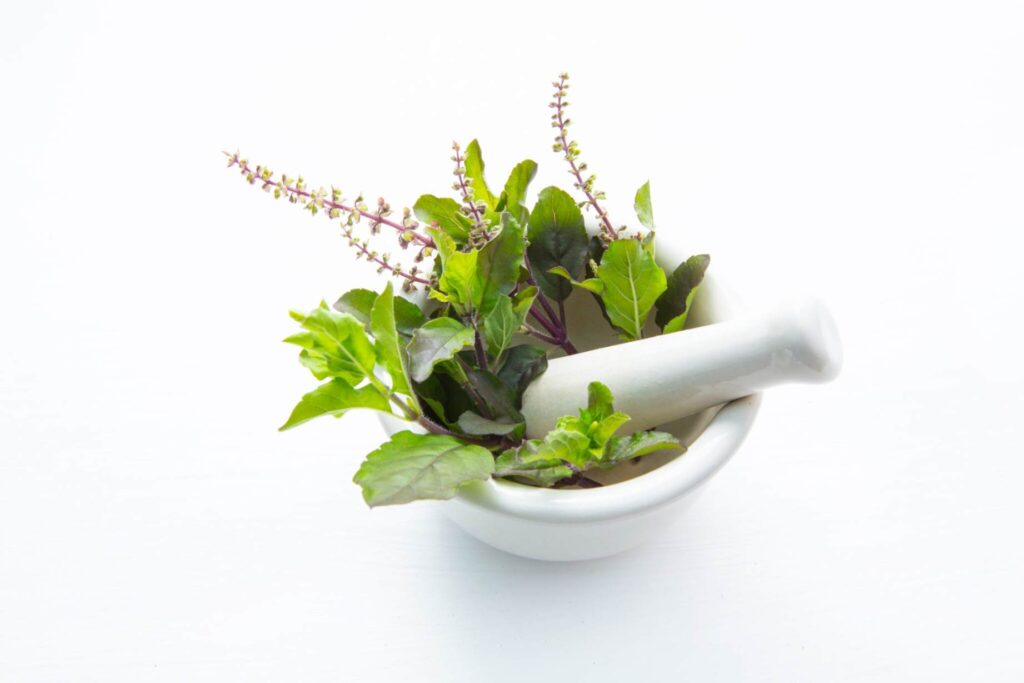
6. Holy basil
Holy basil, also known as tulsi, is an herb that is commonly used in Ayurvedic medicine and has a long history of use in traditional medicine. The active ingredient in holy basil is eucalyptol, which has been shown to have anti-inflammatory and antioxidant properties. In addition, holy basil has been found to have anti-cancer properties, and has been shown to be effective in treating various types of cancer, including leukemia, lymphoma, and breast cancer.
Core ingredients:
Eucalyptol is the active ingredient in holy basil that is responsible for its anti-cancer properties.
Methods of consumption:
Holy basil can be consumed as a tea, or as a supplement in pill form.
Other health benefits:
In addition to its anti-cancer properties, holy basil has also been shown to have a number of other health benefits, including reducing stress and anxiety, improving digestion, and boosting the immune system.
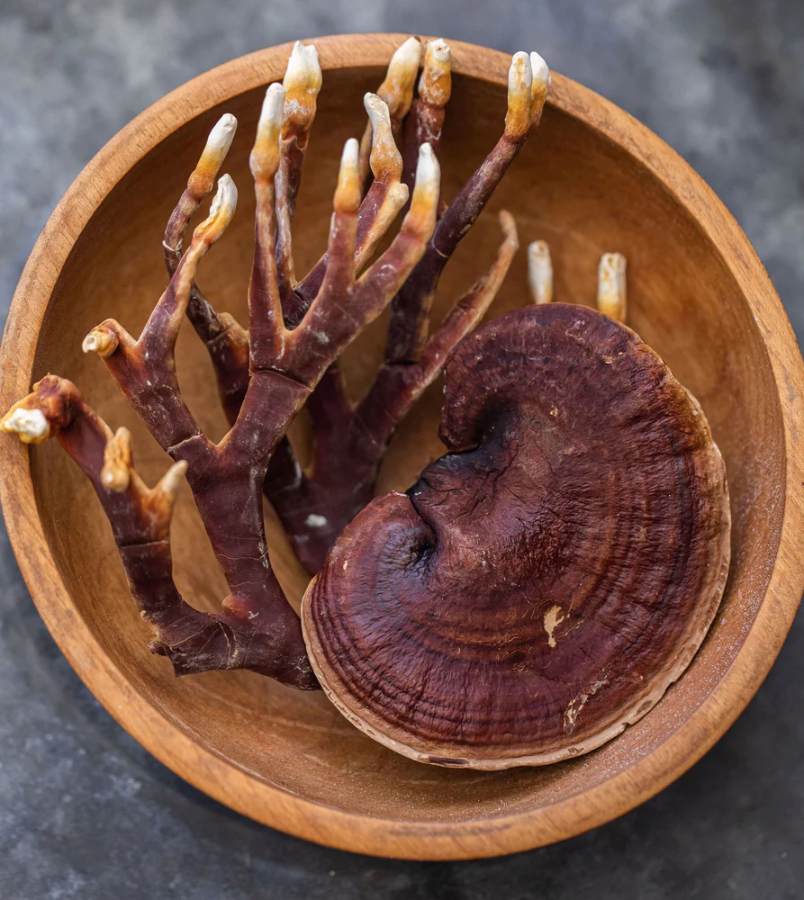
7. Reishi mushrooms
Reishi mushrooms are a type of mushroom that has been used in traditional Chinese medicine for thousands of years. The active ingredient in reishi mushrooms is ganoderic acid, which has been shown to have anti-inflammatory and antioxidant properties. In addition, reishi mushrooms have been found to have anti-cancer properties, and have been shown to be effective in treating various types of cancer, including breast, lung, and liver cancer.
Core ingredients:
Ganoderic acid is the active ingredient in reishi mushrooms that is responsible for its anti-cancer properties.
Methods of consumption:
Reishi mushrooms can be consumed as a supplement in pill form, or as a tea.
Other health benefits:
In addition to its anti-cancer properties, reishi mushrooms have also been shown to have a number of other health benefits, including improving immune function, reducing inflammation, and improving liver function.
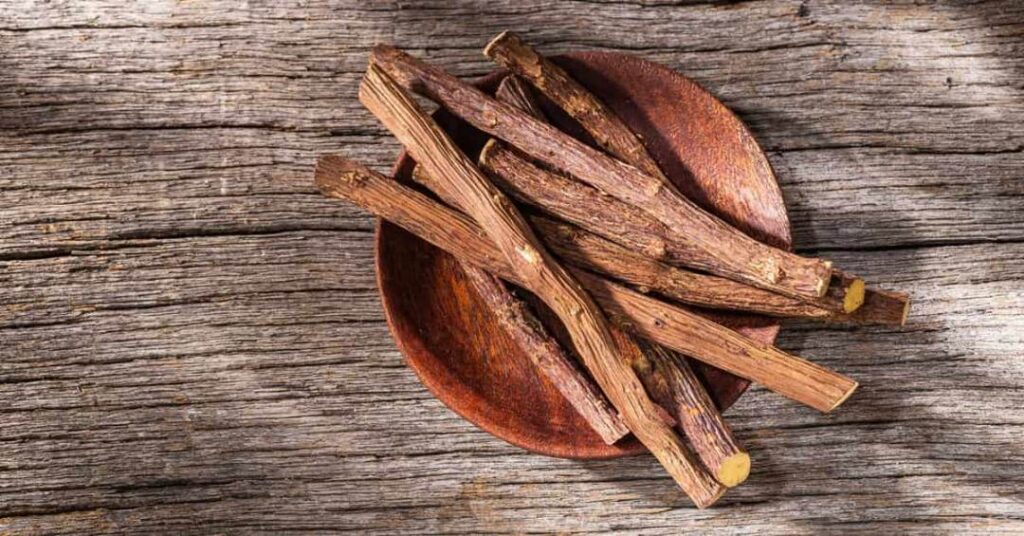
8. Licorice root
Licorice root is an herb that has been used in traditional medicine for thousands of years. The active ingredient in licorice root is glycyrrhizin, which has been shown to have anti-inflammatory and antioxidant properties. In addition, licorice root has been found to have anti-cancer properties, and has been shown to be effective in treating various types of cancer, including breast, lung, and stomach cancer.
Core ingredients:
Glycyrrhizin is the active ingredient in licorice root that is responsible for its anti-cancer properties.
Methods of consumption:
Licorice root can be consumed as a tea, or as a supplement in pill form.
Other health benefits:
In addition to its anti-cancer properties, licorice root has also been shown to have a number of other health benefits, including reducing inflammation, improving digestive function, and boosting the immune system.
More information about Licorice root >
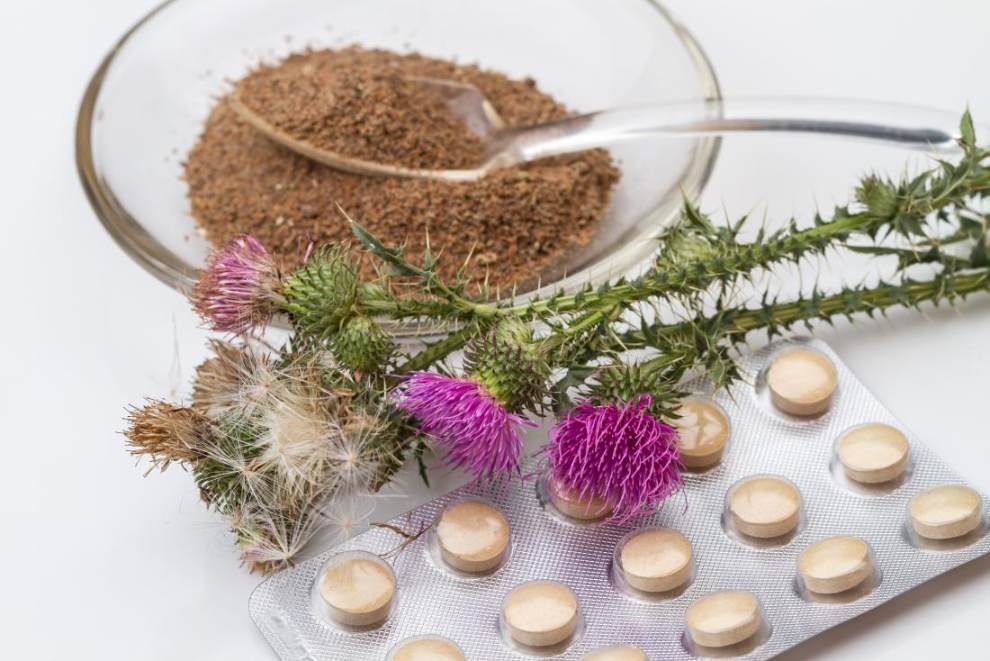
9. Milk thistle
Milk thistle is an herb that has been used in traditional medicine for thousands of years. The active ingredient in milk thistle is silymarin, which has been shown to have anti-inflammatory and antioxidant properties. In addition, milk thistle has been found to have anti-cancer properties, and has been shown to be effective in treating various types of cancer, including liver, breast, and prostate cancer.
Core ingredients:
Silymarin is the active ingredient in milk thistle that is responsible for its anti-cancer properties.
Methods of consumption:
Milk thistle can be consumed as a supplement in pill form, or as a tea.
Other health benefits:
In addition to its anti-cancer properties, milk thistle has also been shown to have a number of other health benefits, including improving liver function, reducing inflammation, and improving heart health.
More information about Milk thistle >
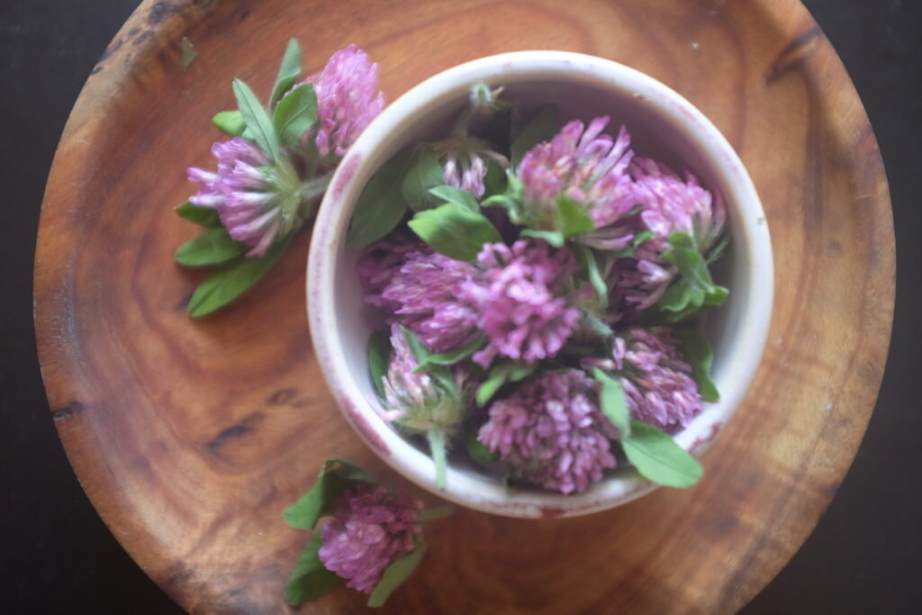
10. Red clover
Red clover is a type of flowering plant that has been used in traditional medicine for thousands of years. The active ingredient in red clover is isoflavones, which have been shown to have anti-inflammatory and antioxidant properties. In addition, red clover has been found to have anti-cancer properties, and has been shown to be effective in treating various types of cancer, including breast and prostate cancer.
Core ingredients:
Isoflavones are the active ingredients in red clover that are responsible for its anti-cancer properties.
Methods of consumption:
Red clover can be consumed as a supplement in pill form, or as a tea.
Other health benefits:
In addition to its anti-cancer properties, red clover has also been shown to have a number of other health benefits, including reducing menopause symptoms, improving heart health, and boosting the immune system.
In conclusion, there are many herbs and mushrooms that have been shown to have anti-cancer properties. While these herbs and mushrooms should not be used as a substitute for conventional cancer treatments, they may offer additional benefits and may be used in conjunction with other treatments. It is important to consult with a healthcare provider before using any herbs or mushrooms for medicinal purposes, as some of them can interact with other medications and may cause side effects.
